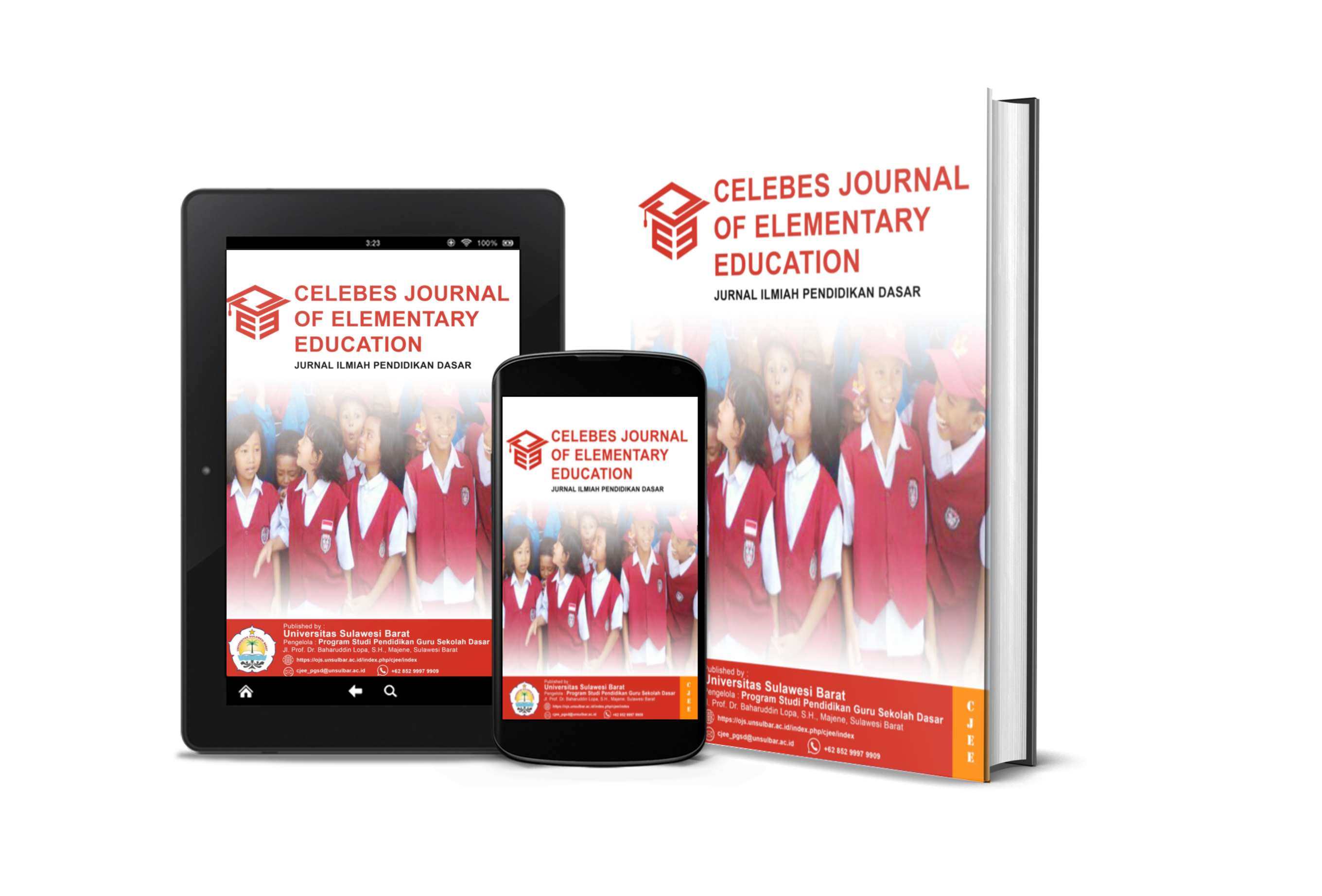Main Article Content
Abstract
This study discusses the effectiveness of the application of the STM learning model on the learning outcomes of class V students of SD Negeri 3 Tinambung. The purpose of this study was to determine 1) The learning outcomes of students before the application of the STM learning model 2) The learning outcomes of class students after the application of the STM learning model and 3) The Effectiveness of the Application of the STM Learning Model on Student Learning Outcomes. This study uses quantitative research, pre-experimental design type and one-group pre-test-post-test design type. The population in this study were all class V students totaling 30 students. The instruments used were learning outcome tests and documentation. The data analysis techniques used were descriptive statistics and inferential statistics. Based on the results of data analysis using descriptive statistics, the average value of students before being taught the STM learning method was 48 and the average value of students after being taught with the STM learning model was 78. The results of the SPSS 25 sign calculation. < α = 0.05 or (0.000> 0.05) in the sense that H0 is rejected and H1 is accepted, with a confidence level of 95% it is said that the average value of student learning outcomes before the implementation of the STM learning model is not the same as the average value of student learning outcomes after the implementation of the STM learning model. This data shows the effectiveness of the implementation of the STM learning model.
Keywords
Article Details
References
- Agustini. D. Subagia, I. W. Suardana. I. N. (2013). Pengaruh Model Pembelajaran Sains Teknologi Masyarakat (STM) Terhadap Penguasaan Materi dan Keterampilan Pemecahan Mmasalah Siswa pada Mata Pelajaran IPA di MTs. Negeri Patas. E-Journal Program Pascasarjana Universitas Pendidikan Ganesha. e-Journal Program Pascasarjana Universitas Pendidikan Ganesha, 3(2).
- Arifin, I., & Hasanah, U. (2024). Membangun Kesadaran Sosial Siswa Sejak Dini melalui Pendidikan IPS di Sekolah Dasar. Celebes Journal of Elementary Education, 2(2), 121–127.
- Asep, J., & Abdul, H. (2011). Evaluasi Pembelajaran. Dalam Bandung:PT Remaja Rosdakarya (1 ed.). Multi Presindo.
- Asrori, M. (2016). Pengertian, Tujuan Dan Ruang Lingkup Akuntansi Sektor Pemerintah. Madrasah, 6(2), 26.
- Aziz, R. (2011). Aspek-aspek Pendidikan dari Kisah Maryam dalam Al-Quran (1 ed.). Alauddin university press.
- Ibrahim, R., & Syaodah, N. (2010). Perencanaan Pengajaran. Rineka Cipta.
- Manda, D., & Arifin, I. (2024). Teacher’s Strategy in Fostering Students Empathy through Thematic Learning Approach in Elementary School. Celebes Journal of Elementary Education, 2(2), 92–100.
- Nawir, M. A. (2021). Pengaruh Model Pembelajaran Problem Based Learning Terhadap Hasil Belajar Peserta Didik SDN 008 Camba-Camba Polewali Mandar. Indonesian Journal of Intellectual Publication, 1(3), 163–174. https://doi.org/10.51577/ijipublication.v1i3.104
- Sagala, S. (2005). Konsep dan makna pembelajaran, cetakan ketiga. Dalam Bandung: CV Alfabeta (13 ed.). Alfabeta.
- Sanjaya, W. (2019). Pembelajaran Berorientasi Standar Proses Pendidikan. Dalam Kencana Prenada Media Group (Cet ke-11, Nomor 4401022015). Prenadamedia Group.
- Suarni, G. L., Rizka, M. A., & Zinnurain, Z. (2021). Analisis Pengaruh Penerapan Model Pembelajaran Sains Teknologi Masyarakat Terhadap Hasil Belajar Siswa. Jurnal Paedagogy, 8(1), 31. https://doi.org/10.33394/jp.v8i1.3226
